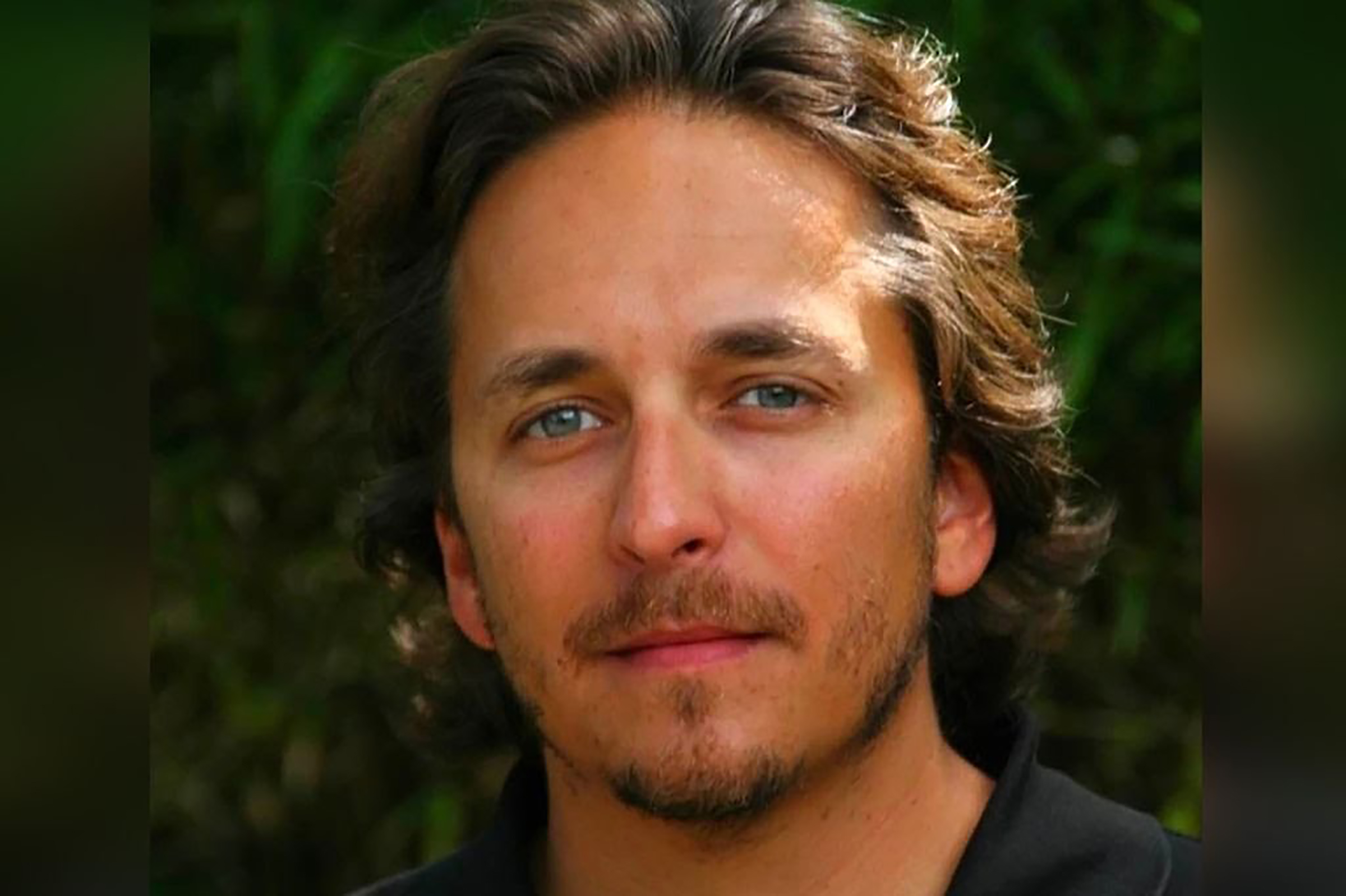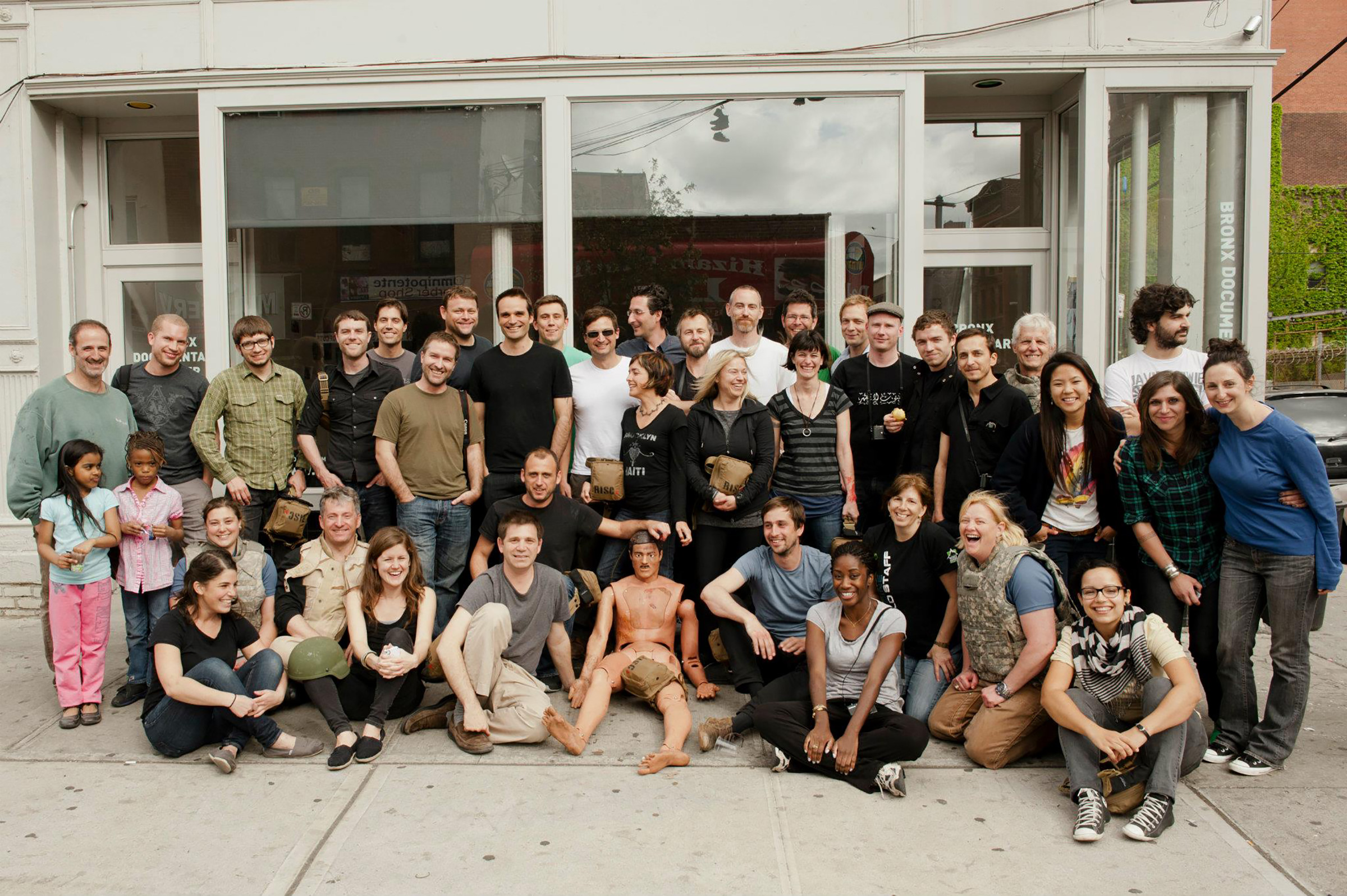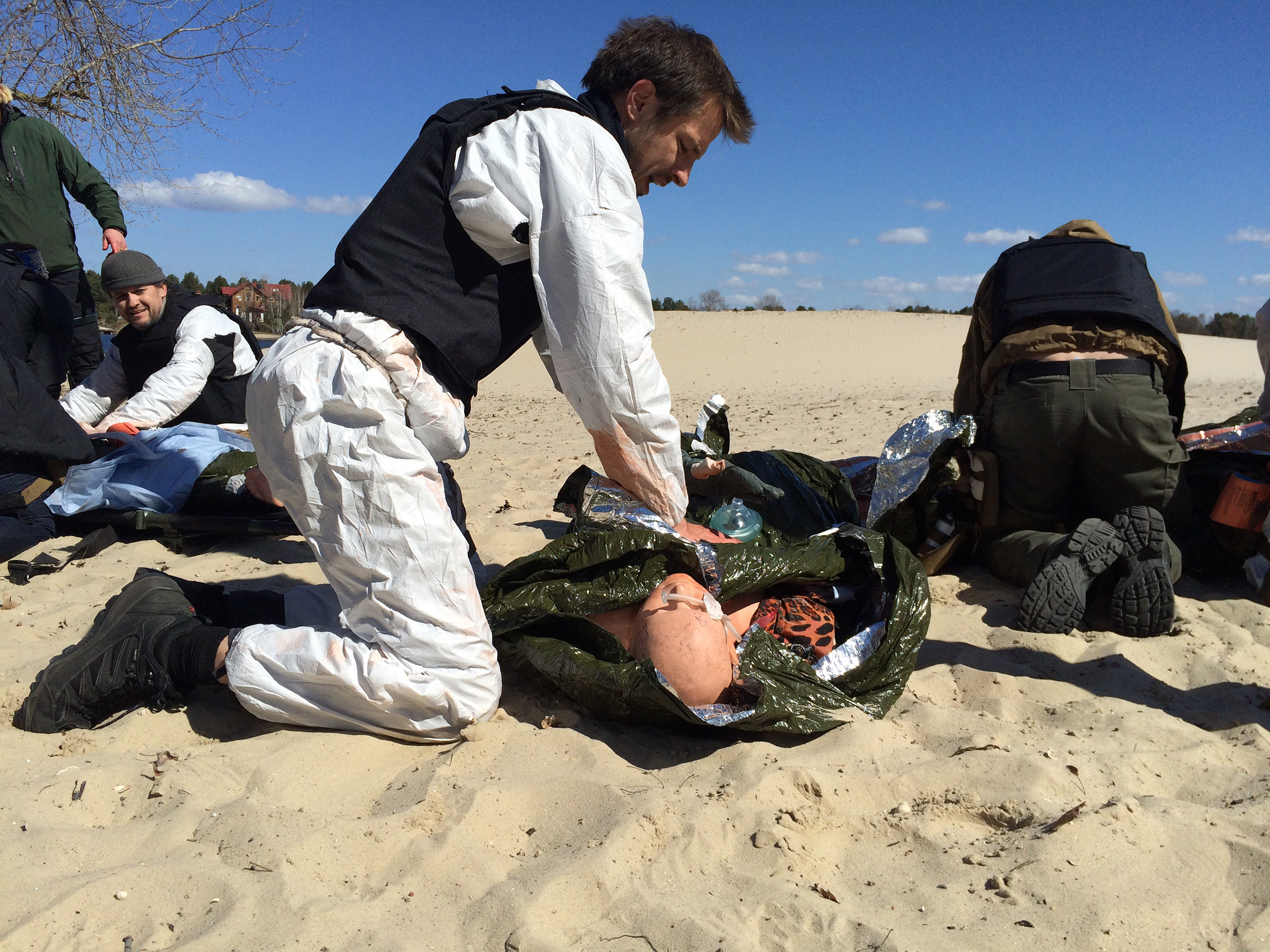
Almost exactly eleven years ago, the landline rang in my New York City apartment, and I answered it and found out that my dear friend and colleague, Tim Hetherington, had been killed in Libya. The Arab Spring was in full swing, and Tim had gone to the besieged city of Misrata, where he was hit by shrapnel from a mortar round fired by the Libyan Army. He bled to death in the back of a rebel pickup truck looking up at the blue Mediterranean sky.
Tim and I had spent a year traveling in and out of the terrifying Korengal Valley, in eastern Afghanistan, to document the deployment of a single American platoon. The resulting film, Restrepo, went all the way to the Oscars. We had been through a lot together and were both very lucky to be alive but now, suddenly, Tim wasn’t. I hung up the phone because my cell phone was already ringing non-stop. It would be days before I was able to cry over Tim’s death, though once I started, I never entirely stopped.
Several days ago, the loved ones of filmmaker Brent Renaud got the same kind of devastating news. Renaud was covering the refugee crisis in Ukraine when Russian soldiers opened fire on the civilian car he was riding in, hitting him in the neck. (His colleague, Juan Arredondo, was also hit but survived.) Renaud was a highly-regarded freelancer who worked all over the world documenting some of the most violent and inhuman circumstances civilians are subjected to, including desperately poor areas of Chicago. Journalists have always taken risks to get their stories (the year Tim died 48 other journalists were killed while doing their jobs) but freelancers like Renaud are particularly vulnerable.

Without freelancers and local press, however, international news coverage would be almost impossible. Established news organizations can’t possibly maintain enough salaried staff in the field to keep pace with world events, and no one—from hotshot TV reporters to gritty freelancers—can work safely and efficiently without the help of local journalists. The great courage and knowledge of these people have saved the lives of countless international journalists over the years. According to the Committee to Protect Journalists, roughly 90% of all journalists killed worldwide are locals.
After Tim was killed, I started a non-profit, Reporters Instructed in Saving Colleagues, to train and equip freelancers and local journalists in combat medicine. Staff reporters are sent to “hostile environment awareness training” (HEAT) by their employers, but few freelancers or locals can afford the $5,000 price tag, so RISC was completely free. The first four-day course was held ten years ago at the Bronx Documentary Center, in New York City, and Brent Renaud was one of the students—along with James Foley, who was beheaded by ISIS in Syria two years later. A third journalist from that class, Matt Power, died of heat stroke while on assignment in Uganda. Renaud, a slight, handsome man with a soft southern accent, was one of the most experienced journalists there and one of the most humble.
Read More: My Brother Died Giving a Voice to Those in Need
After the 2014 Maidan Square protests in Ukraine, RISC held the first course exclusively for local press. We drilled 24 young Ukrainians in how to stop the kind of catastrophic bleeding that killed Tim, how to decompress a sucking chest wound, how to immobilize a broken back, and how to keep someone alive with CPR. There was already fighting in the Donbas region of Ukraine, and our young journalists were very clear about their priorities: “We are going to teach all of our friends what we are learning here from you,” one journalist said, “because we know there is going to be a war.” Some may now be covering that war.
Alas, funding for RISC dried up before funding for wars did, and we have not been able to put on a course since 2019. Now three weeks into the Russian invasion of Ukraine, the civilian death toll is likely in the thousands and journalists have already started dying. In addition to Renaud, a Fox News crew was fired on as they drove through the outskirts of Kyiv, badly wounding Benjamin Hall—also a RISC graduate—and killing 55-year-old cameraman Pierre Zakrzewski. Also killed was Oleksandra Kuvshinova, a 24-year-old Ukrainian journalist. If this war unfolds in the same way as the Bosnian civil war, with cities getting shelled for months or years on end, civilian and journalist fatalities will skyrocket. Around 38,000 civilians and 19 journalists were killed in Bosnia between 1992 and 1995.

Without the work of these brave people there could be no such thing as democracy or freedom in the world—elections would be stolen, war crimes would be denied, injustices would be hidden. In a world without journalists, leaders like Vladimir Putin could claim whatever self-serving reality they wanted and remain utterly unaccountable for their crimes. Some people in the U.S. have recently taken to calling journalists the “enemy of the people,” but is illuminating to note which world leaders have actually taken this idea to heart and started killing them: Vladimir Putin of Russia, Mohammed bin Salman of Saudi Arabia and Abu Bakr al-Baghdadi of ISIS (deceased). Accusing journalists—or anyone—of being an enemy of the people is the first step in using violence against them, and no right-minded person should want to have anything to do with such nonsense.
The human costs of pursuing the truth are horrific—scores of journalists killed every year, worldwide—but the costs of living in an unfree society are even higher. Just ask the people of Ukraine.
More Must-Reads from TIME
- Cybersecurity Experts Are Sounding the Alarm on DOGE
- Meet the 2025 Women of the Year
- The Harsh Truth About Disability Inclusion
- Why Do More Young Adults Have Cancer?
- Colman Domingo Leads With Radical Love
- How to Get Better at Doing Things Alone
- Michelle Zauner Stares Down the Darkness
Contact us at letters@time.com